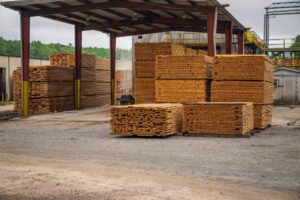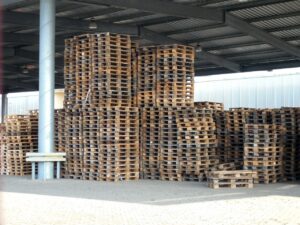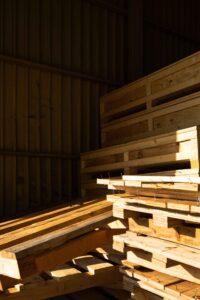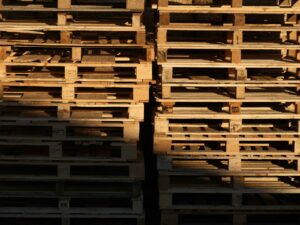As India continues to adopt sustainable solutions, bamboo tissues are becoming a popular alternative to conventional paper tissues. Made from bamboo fibers, they are eco-friendly, soft, and sustainable, offering a guilt-free way to stay hygienic. If you’re considering switching to bamboo tissues, here’s an exhaustive guide with all the pros, cons, and answers to common questions.
Why Choose Bamboo Tissues?
India consumes millions of tons of wood-based paper products each year, leading to large-scale deforestation and pollution. Bamboo tissues, in contrast, offer a renewable, eco-friendly alternative. Bamboo grows quickly without fertilizers, pesticides, or excessive water, making it an ideal sustainable resource. Bamboo tissues are not only gentle on the skin but also gentle on the Earth.
Pros of Bamboo Tissues
1. Eco-Friendly and Sustainable
Renewable Resource: Bamboo grows quickly and regenerates itself, making it a highly sustainable resource.
Less Deforestation: Unlike traditional tissues that rely on tree pulp, bamboo tissues reduce the need for deforestation.
2. Hypoallergenic and Gentle on Skin
Skin-Friendly: Bamboo fibers are naturally soft and hypoallergenic, making them suitable for sensitive skin, infants, and people with allergies.
Chemical-Free Production: Bamboo tissues are typically made without harmful chemicals, dyes, or bleaches, offering a natural alternative for skin care.
3. Compostable and Biodegradable
Environmentally Safe Disposal: Bamboo tissues are biodegradable and can break down within weeks, especially in composting conditions, unlike conventional tissues which may contain chemicals.
4. Naturally Antimicrobial and Antifungal
Reduces Bacteria: Bamboo has natural antimicrobial and antifungal properties, helping keep tissues hygienic and fresh even when stored.
5. Higher Absorbency and Strength
Efficient Use: Bamboo tissues are more absorbent and durable than conventional tissues, so you may need fewer tissues to get the job done.
6. Supports Local and Sustainable Industries
Boosts Economy: India’s bamboo-rich regions, such as the Northeast, benefit from the growth of bamboo-based products, supporting local farmers and eco-friendly businesses.
Cons of Bamboo Tissues
1. Higher Price Point
Bamboo tissues generally cost more than regular tissues due to sustainable sourcing and production practices, which can make them less accessible for some consumers.
2. Limited Availability in Rural Areas
Bamboo tissues might not be as widely available, especially in rural areas, where traditional tissues are more common and affordable.
3. Potential for Mold if Not Stored Properly
Bamboo is more susceptible to mold growth in humid environments. If bamboo tissues aren’t stored correctly, they can become damp and lose freshness.
4. Lack of Variety in Softness and Thickness
Bamboo tissues are generally softer than regular tissues, but options in thickness or texture variety might be limited compared to traditional tissues that offer ultra-soft or scented options.
5. Inconsistent Quality Across Brands
With more brands offering bamboo tissues, quality can vary, so some tissues may be less durable or more prone to tearing.
6. Not Entirely Chemical-Free
While bamboo is a natural material, some bamboo tissues still use chemicals during processing. Opt for brands labeled as “chemical-free” or “unbleached” for a more natural product.
Frequently Asked Questions (FAQ)
1. Are bamboo tissues completely biodegradable?
Yes, bamboo tissues are biodegradable and compostable. They generally break down within 2–6 weeks in composting environments. Just ensure they don’t contain any non-biodegradable additives or plastic packaging.
2. How are bamboo tissues different from traditional tissues?
Bamboo tissues are made from bamboo pulp rather than wood pulp, which makes them eco-friendly. They are typically more absorbent, softer, and hypoallergenic. Unlike traditional tissues, bamboo tissues require less water and no harmful chemicals during production.
3. Are bamboo tissues safe for people with allergies?
Yes, bamboo tissues are generally safe for people with sensitive skin or allergies. They are hypoallergenic and often free from harsh chemicals, making them suitable for those prone to skin irritation.
4. Can I compost bamboo tissues at home?
Absolutely! Bamboo tissues are fully compostable and will break down in a home compost bin. Just ensure they are unbleached and chemical-free for a more eco-friendly decomposition process.
5. Are bamboo tissues more expensive than regular tissues?
Generally, yes. Bamboo tissues are more costly than standard tissues due to sustainable production practices. However, the cost can be seen as an investment in the environment and a reduction in waste.
6. Are bamboo tissues strong enough for heavy-duty use?
Bamboo tissues are known for their strength and absorbency, making them suitable for heavy-duty use. They can handle spills and cleaning tasks better than regular tissues, often needing fewer tissues per use.
7. Do bamboo tissues have any smell or scent?
Bamboo tissues are typically unscented and have no artificial fragrances. They may have a mild, natural smell due to the bamboo pulp, which fades quickly and is generally pleasant and unobtrusive.
8. Are bamboo tissues safe for use on babies?
Yes, bamboo tissues are soft, chemical-free, and gentle, making them suitable for babies and people with sensitive skin. However, always check the product label to ensure they are free from chemicals, dyes, or bleaches for sensitive baby skin.
9. Can I flush bamboo tissues down the toilet?
While bamboo tissues are biodegradable, it’s best to avoid flushing them as they are thicker and can contribute to clogging. Instead, compost them or dispose of them in a waste bin.
10. How can I store bamboo tissues to avoid mold?
Keep bamboo tissues in a dry, cool place and avoid areas with high humidity. Opt for sealed containers in particularly humid climates to maintain their freshness.
11. Are there vegan-friendly bamboo tissues?
Yes, bamboo tissues are vegan-friendly as they contain no animal-derived ingredients. However, check that the brand doesn’t test on animals if you’re looking for cruelty-free options.
12. Do bamboo tissues have antimicrobial properties?
Yes, bamboo is naturally antimicrobial and antifungal, which helps keep the tissues fresher for longer. However, these properties diminish once the bamboo is processed, so always store tissues properly.
How to Choose Quality Bamboo Tissues
1. Check for Certifications: Look for certifications like BIS and FSC (Forest Stewardship Council) to ensure the bamboo is sustainably sourced.
2. Avoid Bleached Products: Choose unbleached, chemical-free bamboo tissues for a more natural and eco-friendly experience.
3. Opt for Indian Brands: Many Indian companies are producing bamboo tissues, supporting local bamboo farmers and minimizing the carbon footprint due to shorter transportation distances.
4. Check Packaging: Look for brands that offer recyclable or compostable packaging to make the entire product as eco-friendly as possible.
Are Bamboo Tissues Worth It?
Switching to bamboo tissues is a small step with a big impact. They’re eco-friendly, gentle, and biodegradable—an excellent option for individuals and families aiming to reduce their carbon footprint. While they may come at a higher price, bamboo tissues offer significant environmental benefits over traditional options, making them a worthy choice for those committed to sustainable living.
Embrace eco-friendly living, starting with bamboo tissues—a sustainable way to stay clean and green.






